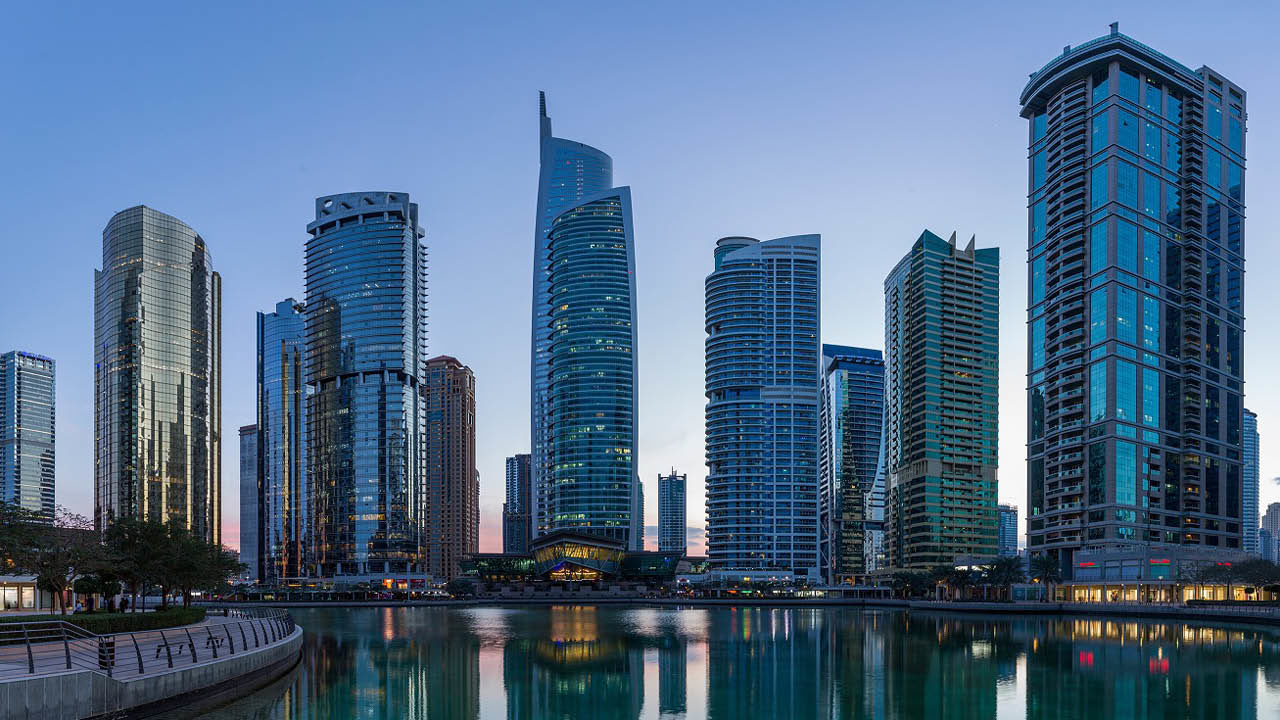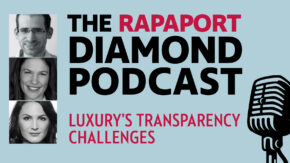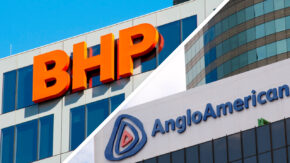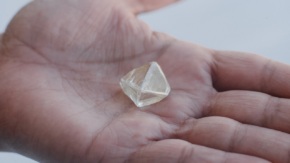This past summer, the Gemological Institute of America (GIA) shut its Antwerp laboratory and announced plans to open a new location in Dubai. The organization insisted that the two decisions were unconnected. However, to the observer, the move was a telling indication of the diamond industry’s trajectory in Belgium and the United Arab Emirates (UAE).
Dubai’s trade has enjoyed sharp growth since the Covid-19 pandemic. Last year’s rough exports surged 98% over 2020’s to $12.96 billion, which was 62% higher than 2019’s figure, according to the Dubai Multi Commodities Centre (DMCC). Polished exports were up 70% year on year at $4.15 billion — though this was still well behind Antwerp — and gained 6% compared with 2019. And while the DMCC has not yet published detailed data for 2022, it did report a 14% year-on-year increase in its first-half rough imports and exports combined, for a total of $13.05 billion.
Meanwhile, Belgium’s 2021 rough exports grew by a more modest 64% year on year to $11.12 billion, according to the Antwerp World Diamond Centre (AWDC). This put it behind the UAE for the first time. Compared with 2019, exports were up 21%. The AWDC has not released further data since January 2022, when rough exports rose 24% year on year to $953.8 million.
While these Antwerp numbers are reasonably strong, they still fall short of Dubai, which has become the world’s fastest-growing diamond trading center thanks to an array of factors. It’s a three-hour flight from Mumbai and Tel Aviv, and there are direct flights between the nearby UAE city of Sharjah and Indian manufacturing hub Surat. Dubai is well-located for Africa’s mining nations and for European commercial centers. Its status also took a major step forward in 2020, when the UAE signed a treaty with Israel that opened the door to diamond trading between the countries.
“The most important [factor behind the growth] is the connectivity linking Dubai through Emirates airlines and Flydubai and other world-class airlines…to the major producing countries and the manufacturing hubs,” states Martin Leake, special adviser for precious stones at the DMCC.
Dealers report an easier time obtaining bank financing there than in Antwerp, which has suffered from a lack of access to credit. Taxes are low in Dubai, and while it’s an expensive city, expats from other countries enjoy a reasonably high quality of living there. The UAE dirham — pegged to the dollar — is one of the world’s most stable currencies, giving investors in the country peace of mind.
The rough side
Auction house Trans Atlantic Gem Sales (TAGS) picked Dubai for the launch of a tender series in 2017 and now offers approximately $50 million in goods almost every month. Stargems, founded in Antwerp, switched its head office to Dubai and holds regular rough tenders in the city. Other companies that have joined the Dubai tender circuit in recent years include Grib Diamonds, I. Hennig & Co., Koin International and Choron Group.
Covid-19 led to surprising benefits for Dubai. The UAE took a more relaxed approach than other centers during the virus waves of late 2020 and 2021, keeping business flowing while Belgium and Israel implemented lockdowns. De Beers held some of its sight viewings in Dubai when Botswana closed to visitors.
“When Antwerp was still suffering from the whole Covid-19 problem, Dubai was open, and some tender houses moved production to Dubai,” says one market observer on condition of anonymity. “So Dubai has indeed gained.”
Central to Dubai’s success has been its access to rough from Angola, the world’s most important emerging diamond producer.
“If you go back to 2002, for example, Dubai was insignificant in terms of diamonds,” comments another well-positioned industry member. The turning point, the source says, was a series of events in the early 2000s. In 2002, the government established the DMCC, which provides infrastructure for trading in a range of products, from diamonds to coffee. Around the same time, Angola established a diplomatic presence in the UAE and started making deals with manufacturers for the supply of rough, much of which ended up going to Dubai for trading. And Dubai’s leaders, he adds, knew how to maintain good relations with the decision-makers in Angola.
“I thought it was crazy to even launch a new diamond center that close to Tel Aviv,” the source says. “But they have their reasons. When you look at it geographically, it works to [Dubai’s] advantage. And in terms of promoting the country…they’ve done a very good job.”
In the last two years, Angola has been exporting around 90% of its rough to the UAE, said Diamantino Azevedo, the African nation’s minister for mineral resources and petroleum, at the Dubai Diamond Conference in February.
The Russia-Ukraine crisis, however, has not worked in Dubai’s favor. While US sanctions on Russian diamonds have affected demand everywhere, banks and logistics firms have made importing Russian goods more difficult for UAE companies than for those in other locations such as Antwerp, explains another market commentator — “so [the] Russia [situation has] probably helped Antwerp a bit more.”
Rivalry and accusations
The competition with Antwerp has sometimes turned into a rivalry — one that has fueled, and been fueled by, accusations of foul play on the UAE’s part.
After Dubai announced its 2021 trade statistics this past February, the AWDC — which declined an interview for this article — argued that the two diamond hubs “have a very different way of working. For example, [Dubai does] not publish official records, [does not] evaluate the value of goods…and [does not] apply the same standards of compliance and due diligence, resulting in the absence of transparent, comparable or independent data.”
The DMCC’s Leake, however, insists that its “standards are aligned with international best practices.” Ironically, Dubai, which has been inconsistent about releasing import and export data for years, did provide figures — albeit limited — for the first half of 2022, while the AWDC had yet to publish numbers for most of the year as of press time.
The core ethical criticism of Dubai has been its alleged associations with money laundering. In 2013, the Financial Action Task Force (FATF) — an intergovernmental group that the G7 nations founded to counter corruption — waved a red flag regarding the large price differences between imports and exports of rough going through the UAE. The UAE shipped some 60 million carats of rough into the country in 2012 and exported around the same amount, FATF noted in its report. However, there was a 50% difference in value: Imports were $4.56 billion, compared with exports of $6.82 billion. Sorting services only add about 10% to 15% to the value, so the remaining markup “is unclear and would merit further investigation,” the report said.
In 2021, the Dubai markup was 31%, according to Rapaport calculations — a lower figure than before, but still more than Antwerp’s 6% for the same year. Asked about the numbers, Leake reiterates that companies operating in the UAE have “fair, transparent trade practices.”
Balancing the scales
Dubai is “doing its best to try to come [in line with] best-practice principles, like Antwerp also did,” affirms the first anonymous market observer. “Let’s not forget that Antwerp…also had enormous problems.” By way of example, he points to the Monstrey Worldwide Services case, in which several members of the Belgian diamond trade were convicted in 2016 of involvement in a tax-evasion fraud. “It all happened [in Antwerp] also, and they cleaned up their act.”
As for prospects of expansion, Dubai is one of the most welcoming diamond centers toward synthetics, having held its first tenders of lab-grown rough at the Dubai Diamond Exchange (DDE) in 2019. It also wants to be a player in the natural polished trade, where it currently trails India and Belgium by a long way. With the Surat Diamond Bourse set to open in the coming months, and India pushing to become a leading polished-distribution center, the UAE faces plenty of competition.
“As a polished-diamond center like what Amsterdam was [until the early 20th century] and what Antwerp is [today], the very least Dubai can do is match [this standard], if not exceed it,” DMCC chairman and CEO Ahmed Bin Sulayem told Rapaport in February. “A lot of our rough-diamond clients also have a polished-diamond side of their business, so we’re positioned strongly to benefit from this and bring in that market.”
Antwerp still has some advantages, though. Even after the Israel-UAE accords, Belgium is more “religiously neutral” for Jewish traders, as the second market commentator points out. And in the summer, at least, it’s a more pleasant place to visit than the Arab desert, weather-wise.
Still, some prefer a model of cooperation to one of competition.
“We don’t see a rivalry between the different centers; we see [them as] complementing each other,” Leake states. “We want a global, strong diamond industry that can hold its head up.”
Image: Dubai Multi Commodities Centre (DMCC)



